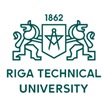COMPETENCIES OF PUBLIC HEALTH CARE PROFESSIONALS AND COMPETENCY DEVELOPMENT NEEDS IN PROVIDING QUALITY SERVICES TO ADOLESCENTS
Last modified: 19.02.2020
Abstract
This article presents findings of the study of public health care professionals' attitude toward the specific competencies in adolescent health care and competency development needs. The study is based on the assumption that adolescents are specific receivers of services provided by public health care professionals; the services, therefore, should be provided with due regard to age, developmental, interpersonal, community, organisational, structural, and other intrinsic factors in terms of adolescents. When counselling adolescents, public health care professionals should be proficient in the following domains: communication style, consultation structure, policies and procedures, involvement of parents/guardians in an adolescent health care process, etc. Proficiency in the above domains requires specific competencies in adolescent health care. An analysis of public health care professionals’ attitude, in view of their existing competencies in adolescent health care, might help to respond more comprehensively the following problematic questions: Why are adolescents to be considered unique clients of services provided by public health care professionals? What do competencies in adolescent health care consist of? What are the needs for competencies of public health care professionals in adolescent health care and development thereof? Thus, this article is aimed to reflect an attitude of public health care professionals toward the specific competencies in adolescent health care and competency development needs. The article consists of an introduction and two parts: the first part provides theoretical assumptions; the second part is dedicated to an empirical analysis of an attitude of public health care professionals toward the specific competencies in adolescent health care, a content thereof, and competency development needs in view of existing competencies in adolescent health care. The article ends with a discussion and conclusions, followed by references.
Keywords
References
Bailin, A., Milanaik, R., & Adesman. A. (2014). Health Implications of New Age Technologies for Adolescents: a Review of the Research. Current Opinion in Pediatrics, 26(5), 605-619. Retrieved from
http://www.medscape.com/medline/abstract/25160783/
Baltag, V. & Sawyer, S.M. (2017). Quality Healthcare for Adolescents. In Cherry, A., Baltag, V., & Dillon, M., (Eds.), International Handbook on Adolescent Health and Development: The Public Health Response. Springer International Publishing AG.
Bitinas, B. (1998). Ugdymo tyrimų metodologija [Methodology of Educational Studies]. Vilnius: Jošara.
Chown, P., Kang, M., Sanci, L., Newnham, V., & Bennett, D.L. (2008). Adolescent Health: Enhancing the Skills of General Practitioners in Caring for Young People from Culturally Diverse Backgrounds: GP Resource Kit, 2nd ed. Sydney: NSW Centre for the Advancement of Adolescent Health and Transcultural Mental Health Centre. Retrieved from http://www.caah.chw.edu.au/resources/gpkit/Complete_ GP_Resource_Kit.pd/
Patton, G.C., Sawyer, S.M., Santelli, J.S., Ross, D.A., Afifi, R., Allen, N.B., ... Viner R.M. (2016). Our future: a Lancet Commission on Adolescent Health and Wellbeing. Lancet, 387(10036), 2423-2478. Retrieved from
http://www.thelancet.com/journals/lancet/article/ PIIS01406736(16)00579-1/fulltext/
Patton, G.C., & Viner, R. (2007). Pubertal Transitions in Health. Lancet, 369(9567), 1130-1139. Retrieved from http:www.sciencedirect.com/ science/article/pii/S01403607603663/
Resnick, M.D., Catalano, R.F., Sawyer, S.M., Viner, R., & Patton, G.C. (2012). Seizing the Opportunities of Adolescent Health. Lancet. 379(9826), 1564-1567. Retrieved from http://www.thelancet.com/pdfs/ journals/lancet/PIIS0140-6736(12)60472-3.pdf/
Sanci, L. A., Coffey, C.M., Veit, F.C., Carr-Gregg. M., Patton, G.C., Day, N., & Bowes, G. (2000). Evaluation of the Effectiveness of an Educational Intervention for General Practitioners in Adolescent Health Care: a Randomised Controlled Trial. British Medical Journal, 320, 224-230.
Sawyer, S.M., Conn, J.J., Reid, K.J., Hudson, L., Yeo, M., & Proimos, J. (2013). Working with Young People: Evaluation of an Education Resource for Medical Trainees. Journal of Paediatrics and Child Health, 49, 901-905.
Sveikata 21 – sveikata visiems XXI amžiuje. Pagrindiniai PSO visuomenės sveikatos priežiūros principai Europos regione [ HEALTH21 – health for all in the 21st century: An introduction to the health for all policy framework for the WHO European Region]. (2017). Vilnius: Ministry of Health of the Republic of Lithuania.
UN Inter-agency Group for Child Mortality Estimation. (2018). Retrieved from https://childmortality.org/?r=site/index&language=fr/
The Register of Public Health Specialist (2019) (p. 5). Vilnius: Institute of Hygiene.
World Health Organization (2006). Programme d’orientation sur la santé des adolescents destiné aux prestataires de soins de santé [Orientation Programme on Adolescent Health for Health Care Providers]. Geneva: World Health Organization. Retrieved from http://www.who.int/maternal_child_adolescent/ documents/9241591269/fr/
World Health Organization (2010). Guide pratique pour les soins aux adolescents. Un outil de référence destiné aux agents de santé de premier niveau [Adolescent Job Aid: a Handy Desk Reference Tool for Primary Level Health Workers]. Geneva: World Health Organization. Retrieved from http://www.who.int/maternal_child_adolescent/ documents/9789241599962/fr/
World Health Organization (2014). La santé pour les adolescents du monde: une deuxième chance pour la deuxième décennie. Résumé [Health for the World's Adolescents: a Second Chance in the Second Decade: Summary]. Geneva: World Health Organization. Retrieved from http://apps.who.int/adolescent/second-decade/files/WHO_ FWC_MCA_14.05_fre.pdf?ua=1/
World Health Organization (2015). Compétences de base en santé et développement de l’adolescent pour les prestataires de soins et outil pour évaluer le volet « santé et développement de l’adolescent » dans la formation initiale des prestataires de soins de santé [Core competencies in Adolescent Health and Development for Primary Care Providers. Including a Tool to Assess the Adolescent Health and Development Component in Pre-Service Education of Health-Care Providers]. Geneva: World Health Organization. Retrieved from
http://apps.who.int/iris/bitstream/10665/181465/1/9789242508314_fre. pdf?ua=1/
World Health Organization (2015). Global Standards for Quality Health Care Services for Adolescents. Geneva: World Health Organization. Retrieved from https://www.who.int/maternal_child_adolescent/documents/global-standards-adolescent-care/en/
World Health Organization (2016). Innov8 Approach for Reviewing National Health Programmes to Leave No One Behind: Technical Handbook. Geneva: World Health Organization. Retrieved from http://apps.who.int/iris/bitstre am/10665/250442/1/9789241511391-eng.pdf?ua=1/








